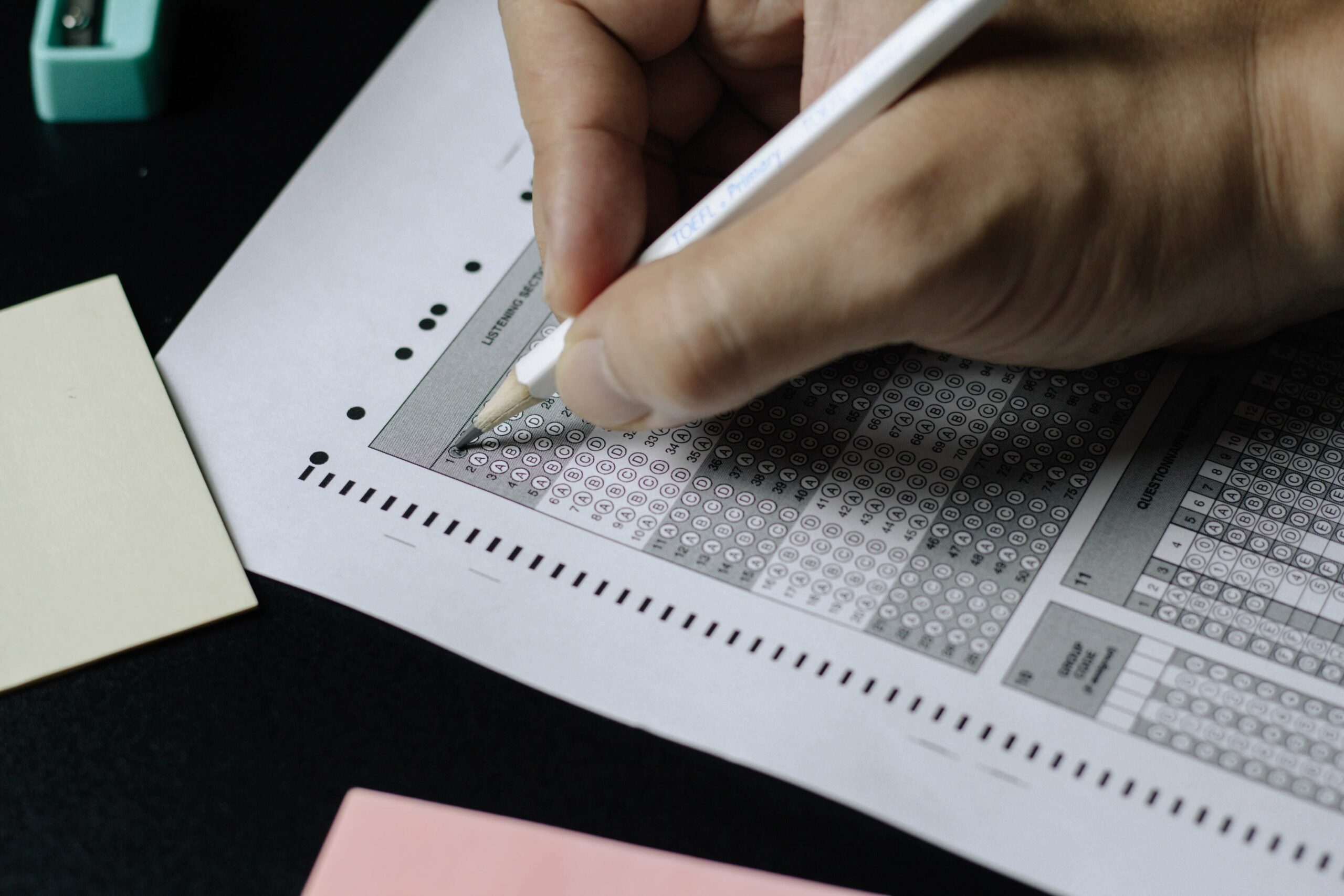Study Smarter! 100 Revision Tips to Help You Pass Any Exam [Updated for 2022]
Exams are, probably, the most stressful part of the curriculum for hundreds of first-year students. They are expected to demonstrate all knowledge acquired throughout multiple months as well as their research skills. In most cases, exams also contribute the largest number of marks to your course grade. This psychological pressure frequently takes its toll on university students who get lower results due to this stress or experience burnout after completing their tests. The best way to avoid this outcome and to demonstrate your best qualities as a learner is to follow a consistent plan throughout your preparation period.
However, we simply cannot offer your ‘an ideal plan for revising your knowledge before an exam’. We would love to have one for you but this is simply not possible. Every person is unique and preparation routines will be different depending on your knowledge levels, preferred daily schedule, and other specific conditions.
This is why we have developed a list of 100 revision tips that offer universal guidance applicable to all exam types and academic subjects. Try these recommendations and integrate the ones that work best for you into your own personalised routine!
1. Start as soon as you can. If you have more time for the preparation, you lower your risks of force majeure situations and minimise the disruption of your daily routine caused by the revision. Starting early actually allows you to spend fewer hours per day revising your notes and maintain a social life in the process.
2. Have a clear plan of action. The better you understand what you have to do every day, the less time will be wasted on thinking about your daily objectives later.
3. Chunk the study materials into smaller, easily recognisable parts. When eating an elephant, take one bite at a time. Knowing the number of these fragments also helps you to equally distribute this load.
4. Do not plan all preparation phases in advance. In most cases, new insights will come to you during your revision sessions. Do not hesitate to add or remove some parts as you revise your course materials and identify new ‘grey areas’.
5. Revise your preparation plans when necessary. Preferably, have intermediary revisions of your objectives every several days.
6. Avoid panic at all costs. While being concerned about your examination results is perfectly normal, you must not get distracted by emotional bursts. If necessary, consult a general practitioner to buy some anti-anxiety medications.
7. Learn basic relaxation and breathing techniques to reduce your stress levels.
8. Find a comfortable place for exam preparation and limit the distractions that stem from the surrounding environment.
9. If possible, put your smartphone out of your field of sight when you work. According to several studies, this simple technique substantially reduces the intention to check your social media and pursue other distractions while allowing you to accept important phone calls.
10. Turn off all unnecessary notifications on your PC and smartphone. From now on, you will be checking app updates, social media feeds, and other non-important stuff during your allocated breaks to not break your concentration.
11. Print all your notes and save them on your smartphone. While this may sound inconvenient, there will be a lot of times in the following weeks when you have 10-20-minute breaks with nothing to do. Rapid study sessions allow you to save time and better prepare for your exams.
12. Flashcards and keyword lists are powerful techniques for the revision of your course materials.
13. Use the Pomodoro technique to schedule breaks and reduce stress.
14. Try studying at different times of the day. Identify the periods where you are most active and concentrated.
15. Write important material down to stimulate your visual and muscle memory.
16. Try working with background music and without it. Many extroverts find that non-distracting sounds create a more comfortable atmosphere stimulating concentration.
17. Identify the key facts and ideas that you will use in the final revision the day before the exam.
18. Revise the core material within 24 hours of initial preparation.
19. Make sure you sleep at least 8 hours a day to keep your memory fresh.
20. Find your favourite exercises and stretches and integrate them into your breaks.
21. Try to take brief walks between learning sessions to let your mind rest and ‘shift gears’.
22. Experiment with working in unconventional areas such as your university library, a local cafe or a coworking zone at your favourite mall. These background changes can make your learning sessions substantially more productive.
23. Studying outside of your comfort zone is also beneficial for improving your stress tolerance during the exam. You will be probably writing your test in an uncomfortable and stressful environment. So, why not prepare for this challenge in a noisy and crowded place?
24. Create a revision timetable in advance and try to follow it as much as possible.
25. Learn more about open-book exams. If your exam is one of those, making extensive notes by hand may be less effective than compiling a list of materials you are permitted to take with you.
26. Use specialised applications wherever possible. Note-taking apps, calendars, and Pomodoro timers can come in especially handy for planning your study sessions.
27. Seek support. Most likely, you will be behaving erratically during the next several weeks and will be entirely focused on your exam. Explain this to your family members, roommates, and friends to win their support and understanding.
28. Learn to read exam requirements. While this sounds obvious, we have seen dozens of cases when stressed students failed to grasp the essay question correctly and provided a sub-optimal answer.
29. Re-write past works. If you have access to last-year materials, do not read them. Re-write a past exam work and compare your results with the originally marked text.
30. Avoid frustration at all costs. You will encounter moments of doubt and some of your plans will fail. Deal with it.
31. Similarly, get rid of all sources of stress before the exam. Difficult conversations, family matters, and filing your tax report can severely boost your cortisol levels, which is the last thing you need during an already stressful period. If possible, delay all of these issues until the end of the exam period.
32. Make all necessary provisions in advance. To prevent accidental disruptions, make sure that you have paid all your bills, obtained all relevant documents, and did everything necessary to maintain your normal lifestyle before entering the revision period. You will sincerely thank yourself for doing this later on.
33. Schedule some socialisation events. A weekly meeting with friends can really break the dullness of exam preparation.
34. Avoid negative emotions. Meeting with your friends is your mental recuperation instrument. Family reunions with some relatives you sincerely hate are not (skip them if possible).
35. Use teacher feedback for your assignments as directions for distinguishing core material.
36. If you find any contradictions between such instructions and official requirements, clarify them as soon as possible.
37. To do this, record any exam-related meetings a listen to these recordings afterwards to not miss some key facts.
38. Create a study group to cooperate and exchange notes.
39. If possible, familiarise yourself with the exam format and requirements.
40. Use your smartphone to record lectures and listen to them during your commute.
41. Cook in advance to always have food on hand. Google for deep-freezing cooking guides that allow you to stock a weekly supply of healthy dishes in just several hours by keeping them in your refrigerator’s freezing chamber.
42. Try to make morning exercises in order to speed up your blood flow and be more productive.
43. Minimise the consumption of coffee, high-sugar beverages, and high-fat snacks. While they provide a temporary energy boost, you will definitely feel drained in the evening.
44. Take breaks. If you have the time, giving yourself half a day off or even a whole day off is actually beneficial to your learning. This way, you can maintain your social and family obligations and give your brain the time to integrate the new knowledge.
45. Memorise key quotes from academic sources to impress your tutor.
46. Practice answering the exam questions in front of a friend.
47. Create your own phrase bank to quickly write short essays and answers.
48. Take a look at the university marking schemes and highlight core material and the requirements contributing the largest number of marks to your final score. Try to focus on these elements first.
49. Read as many past papers as possible. In most cases, you can thoroughly study the sample works from the previous exams to identify key mistakes and problematic areas.
50. Cooperate with your fellow students. Discuss your studies to identify the drawbacks and ‘grey areas’ that you could have missed during individual preparations.
51. Alternatively, record your answers to exam questions. Do you sound confident? Is there any important information missing from your speech?
52. Study regularly to avoid straining your memory too much.
53. Create a list of key vocabulary for each subject.
54. Paraphrase definitions and theories when revising to boost your memory.
55. Look up the time constraints for each exam in advance.
56. After revising, outline a brief topic summary.
57. Enrich your vocabulary by annotating journal articles.
58. Add some sweets to your diet to stimulate brain neurons.
59. Start with the subjects you know the least…
60. …and gradually work your way up to the subject you know the most.
61. Try alternating between studying in silence and working in places with a lot of ambient sounds to ‘refresh’ your concentration.
62. Categorise lectures by themes or concepts mentioned by your tutor.
63. Establish rewards for revising specific topics or subject to stay motivated.
64. Clearly identify the ‘minimal viable product’ for your studies. Strive to achieve this basic preparedness level first before delving deep into certain questions or theories.
65. If you stumble across a complex topic that may take several days to explore, you may want to put it aside until you have prepared other ones. Knowing half of the materials well enough for a first-standard grade is of no use to you if you fail other questions and do not get a pass mark as a result.
66. Try to avoid perfectionism. Perfection comes from practice and not obsession. Start small, reach the baseline and repeat the repetition process several times to get to the top.
67. Use social media blockers such as Forest to support your willpower during the preparation phase. Try to check your phone only during the rest periods between study sessions.
68. Experiment with mind maps, bullet points, and other instruments allowing you to summarise key findings and visualise the logical connections between different concepts.
69. Give yourself a break. Not resting between your Pomodoro sessions is the shortest path to burnout and failure.
70. Be realistic. According to Warren Buffett’s famous quote, 9 women cannot produce a baby in one month. Your preparation is a marathon and not a sprint. If you decided to work on it 4 hours a day, do not sit for 9 hours straight. Doing this simply undermines your future productivity.
71. Visit all university meetings to learn more about tutor expectations and to ask additional questions regarding the exam.
72. Regularly contact your tutor if you have questions about the course material. That said,…
73. …do not send a huge list of questions all at once. Instead, send short messages over the course of the module.
74. Practice mindfulness as a quick way of relaxation.
75. Embed short revision sessions to keep your previously learnt facts and figures in your long-term memory.
76. Use note-taking software (such as Evernote) when browsing digital materials.
77. Use online communication tools (e.g. Google Docs) to communicate with your fellow students.
78. Simplify your writing style to minimise time spent on written answers.
79. Try to answer some questions in front of your friends to prepare yourself for a ‘real exam’.
80. Turn on cloud backups to make sure you’re prepared if your PC/Mac fails.
81. Set tangible goals (e.g. read the textbook topic for 15 minutes).
82. Contact older students who have already passed the exam for tips and suggestions.
83. Try to avoid looking for answers and instead create your own unique approach.
84. Make sure to get the latest editions of textbooks to not miss any important material.
85. Avoid the rumours. They usually bring more stress and anxiety than useful facts about the future exam.
86. Do not discuss your preparation with your fellow students. Such comparisons can make you frustrated or give you a false sense of superiority. You do not want either of those.
87. Squat. Make it a habit to do 5-10 squats per hour to keep your blood flowing. This simple exercise can really boost your concentration and ‘mental freshness’.
88. Allocate 30 minutes per week to revising available past papers (if any) to learn more about the exam structure and challenges.
89. Prepare everything you will need during the examination itself beforehand. Create a checklist including pens, stationery items, clothes, lucky charms, etc.
90. If you are permitted to use revision notes, make sure that you have created several copies of them and put them in your bag, your coat, and other places to ensure that you have zero chances of forgetting them.
91. Get to your examination place in advance. This will give you time to resolve any force majeure situations and get a good place in the room.
92. Always have a Plan B. Despite your best efforts, there may be circumstances disrupting your preparation for the exam or making it impossible for you to pass it. To minimise stress and negative consequences, develop a plan of action for any possible scenario. This way, you will know what medical certificates you will need if you suddenly fall ill on the exam morning and will avoid academic penalties decreasing your mark.
93. Plan a failure. Knowing the worst thing that can happen if you completely fail your exam reduces stress and anxiety. You know you can survive anything. You have a Plan B. Now, you are building your results ‘from the ground up’.
94. Visit any university consultations. Tutors frequently provide some last-minute instructions and recommendations during them.
95. Take a trip to the exam location several days in advance to know the room location and potential traffic issues.
96. Leave your smartphone at home. Bringing only the things you need for your exam reduces your anxiety and protects you from accidentally forgetting to turn on the flight mode.
97. Bring some water with you.
98. Eat well before the exam. ‘Brain foods’ such as nuts and chocolate consumed 60-90 minutes in advance can get you in the ‘mental boost’ zone by the time of writing.
99. Wear your favourite clothes. While well-worn tennis shoes and a warm oversized sweater will not look super-cool, they will keep you comfortable and concentrated. Having several ‘layers’ will also protect you from feeling too cold or hot.
100. The previous 99 steps should have made you 100% comfortable and prepared for any outcome. Now, you need to go in with guns blazing and show the examiners the results of your hard work.
As we suggested earlier, there is no ‘one-size-fits-all’ revision planning technique suitable for all students. The best idea is to read through the tips above, select the ones you like best and apply them right away. If you feel that this does not bring sufficient results, you may want to experiment with other suggestions. The key here is to maintain a sense of safety and convenience. Exams are stressful as they are, so, there is absolutely no need to add more stress by experimenting with something you just do not feel comfortable doing.
Mentally and emotionally, exams could be a challenging time. Use the above tips to gain confidence and ace your exams with flying colours! If you feel stressed and/or exhausted, make sure to give yourself some time to rest and seek support from others. Try our exam and revision notes writing service if you struggle to find the best possible answers and wish to organise your materials. Top academic writers in the UK are at your service!
Good luck!





